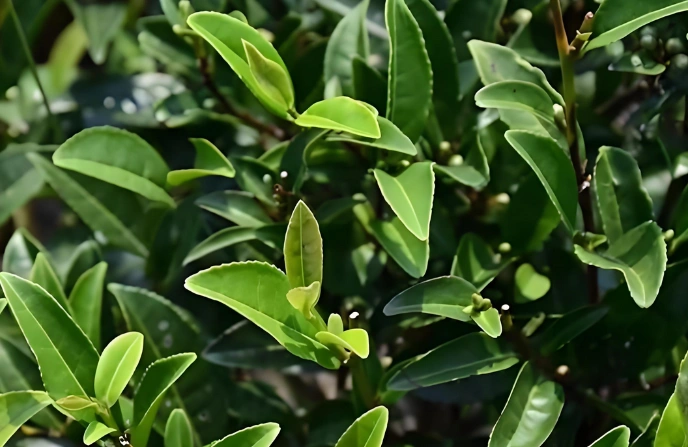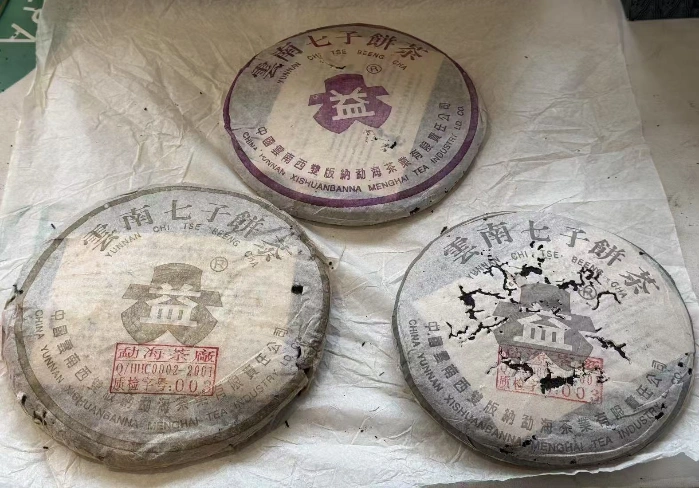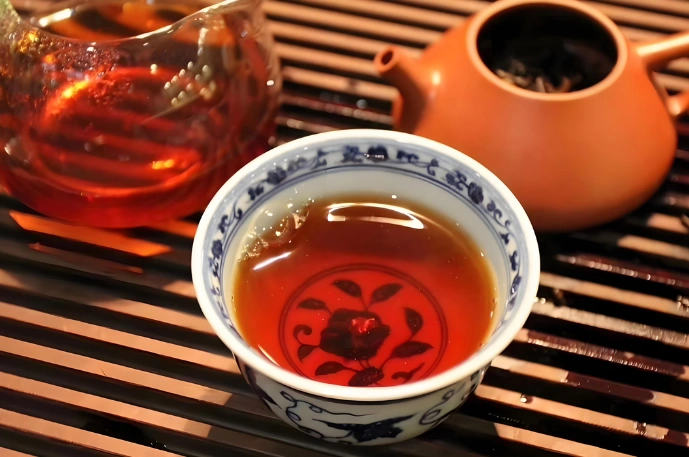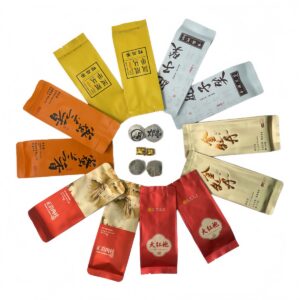Dark tea and heart health have been intertwined in traditional wellness for centuries, offering a rich, warming elixir that comforts the senses and fortifies the cardiovascular system. Imagine cradling a small clay cup, its surface warm beneath your fingers, as fragrant steam rises—notes of roasted malt, forest moss, and a whisper of caramel beckoning you closer. The first sip coats your tongue in a velvety cascade, imparting a gentle energy that courses through your chest like a protective embrace. This is the magic of dark tea and heart health: fermented polyphenols, theabrownins, and antioxidants working in harmony to support cholesterol balance, enhance circulation, and soothe inflammation.
In this guide, we’ll explore the key compounds that make dark tea a natural cardio ally, unveil the latest research on dark tea for cholesterol management and blood pressure, and share practical tips for brewing, timing, and selecting premium leaves. Prepare to discover how this ancient brew can become your daily ritual for lifelong heart wellness.
Understanding Dark Tea
What Is Dark Tea?
Dark tea—known in China as post-fermented tea—includes varieties like Pu-erh, Liu Bao, and Anhua. Unlike green tea (unoxidized) or oolong tea (partially oxidized), dark tea undergoes a secondary microbial fermentation, often aging for months or years. This transforms simple catechins into complex theabrownins, deepening both flavor and health benefits. The result is a deep-amber infusion with earthy, roasted notes and a smooth, lingering finish.
How It Differs from Green and Oolong Tea
- Green Tea: Bright, grassy; rich in unaltered catechins (EGCG).
- Oolong Tea: Floral to fruity; moderate oxidation yields theaflavins.
- Dark Tea: Earthy, malty; fermentation creates theabrownins and unique probiotics.
While green and oolong teas excel at antioxidant delivery and metabolism support, dark tea and heart health shine through their fermentation-enhanced compounds that specifically influence lipid metabolism and vascular function.

Key Compounds in Dark Tea That Benefit the Heart
Fermented Polyphenols and Theabrownins
Theabrownins are brown-pigmented polyphenol polymers formed during dark tea fermentation. These molecules exhibit potent antioxidant and anti-inflammatory effects, scavenging free radicals and protecting blood vessels from oxidative damage. Regular consumption delivers these protective agents directly to the cardiovascular system, helping to maintain arterial elasticity.
Antioxidants and Anti-inflammatory Agents
Beyond theabrownins, dark tea contains:
- Catechin Derivatives: Retained from initial leaves, offering further radical-scavenging.
- Microbial Metabolites: Small peptides and acids produced during fermentation that modulate inflammation.
Together, these compounds help reduce chronic low-grade inflammation—an established contributor to atherosclerosis.
Dark Tea and Cholesterol Management
Mechanisms of LDL Reduction
High levels of LDL (“bad”) cholesterol promote plaque buildup. Dark tea for cholesterol management acts through several pathways:
- Inhibition of Dietary Cholesterol Absorption: Polyphenols bind to cholesterol in the gut, reducing uptake.
- Hepatic Clearance: Theabrownins upregulate LDL receptors in the liver, accelerating removal from blood.
- Bile Acid Excretion: Dark tea stimulates the conversion of cholesterol into bile acids, promoting excretion.
Supporting Studies on Dark Tea for Cholesterol Management
In one 12-week trial, participants consuming two cups of Pu-erh daily experienced:
- 8% reduction in LDL cholesterol
- 5% increase in HDL (“good”) cholesterol
- Significant improvements in LDL/HDL ratio
These findings underscore dark tea for cholesterol management as a flavorful adjunct to heart-healthy living.

Dark Tea for Blood Pressure and Circulation
Vasodilation and Endothelial Function
Healthy blood flow depends on flexible vessels lined by endothelial cells. Dark tea’s fermented polyphenols enhance nitric oxide (NO) production, a vasodilator that relaxes vessel walls, lowering peripheral resistance and supporting healthy blood pressure.
Research on Blood Pressure Modulation
A randomized study found that twice-daily consumption of dark tea led to:
- 6 mmHg average systolic reduction
- 4 mmHg diastolic reduction
This modest yet meaningful change can shift many individuals from “borderline” to within normal ranges, reducing strain on the heart and arteries.
Complementary Benefits for Cardiovascular Wellness
Dark Tea for Immune Boosting
Nearly 70% of immune cells reside in the gut-associated lymphoid tissue. By supporting dark tea for immune boosting, fermented polyphenols help maintain a balanced inflammatory response, preventing chronic inflammation that can damage blood vessels.
Dark Tea Detox Benefits
Dark tea aids gentle detoxification:
- Prebiotic Fibers: Nurture beneficial gut flora that metabolize toxins.
- Microbial Action: Fermentation-derived enzymes help break down metabolic byproducts.
These detox benefits complement heart-health by reducing systemic toxin load and oxidative stress.
Incorporating Dark Tea into a Heart-Healthy Lifestyle
Optimal Brewing Methods and Timing
- Western: 5 g leaves per 250 mL 95–100 °C water, steep 3–4 minutes.
- Gongfu: 6–8 g leaves per 100 mL, quick rinse 5 sec, then 20–30 sec infusions, +5 sec each subsequent steep.
Timing:
- Morning: Kickstarts metabolism.
- Post-Meal: Supports dark tea for cholesterol management and digestion.
- Afternoon: Refreshes energy and vascular tone.
Recommended Daily Intake
Aim for 2–3 cups (500–750 mL) per day. This provides sufficient polyphenols for cardiovascular support without overstimulating caffeine intake.

🔗 To learn more about how to make tea, check out Tanbiwencha’s YouTube video explaining how to make tea.
Selecting and Storing High-Quality Dark Tea
Identifying Authentic Varieties
Look for:
- Origin Labels: Yunnan Pu-erh (Sheng/Shu), Guangxi Liu Bao, Hunan Anhua.
- Leaf Appearance: Whole, glossy, deep-brown.
- Aroma: Earthy-sweet with no mustiness.
Storage Tips to Preserve Cardioprotective Compounds
Store in a cool (20–25 °C), moderately humid (55–65%) environment, using breathable containers (clay jars or paper wrappers). Avoid airtight plastic and strong odors. Periodically inspect for mold or dryness.
FAQs on Dark Tea and Heart Health
How Much Dark Tea Should I Drink?
2–3 cups daily balances benefit and caffeine. Shorten steep (30–60 sec) or switch to aged varieties if sensitive.
Can Dark Tea Replace Medications?
Dark tea can complement but not replace prescribed heart medications. Always consult your physician before adjusting treatment.
Any Potential Interactions or Side Effects?
- Caffeine: 30–70 mg per cup—may affect sleep or cause jitters in sensitive individuals.
- Tannins: Can reduce iron absorption; avoid with iron-rich meals.
- Stomach Sensitivity: Rare irritation—drink after meals or dilute tea.
Conclusion
Recap of Heart-Healthy Benefits
Dark tea and heart health converge through:
- Cholesterol management: Lower LDL, raise HDL.
- Blood pressure support: Improved vasodilation, endothelial function.
- Immune and detox support: Balanced inflammation, toxin clearance.
- Antioxidant protection: Shielding vessels from oxidative damage.
Encouragement to Integrate Dark Tea into Daily Rituals
Begin each day with a mindful pour, savoring dark tea’s deep aromas as a heart-nurturing ritual. After meals, let its warming presence support circulation and metabolism. Explore Pu-erh, Liu Bao, or Anhua to find your signature brew. Embrace dark tea and heart health as a simple, sensory, and scientifically supported path to lifelong cardiovascular wellness.



